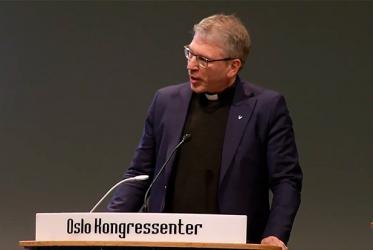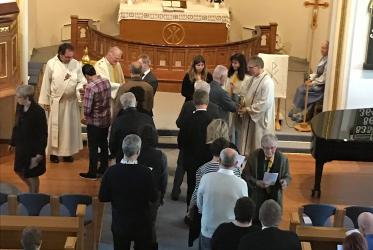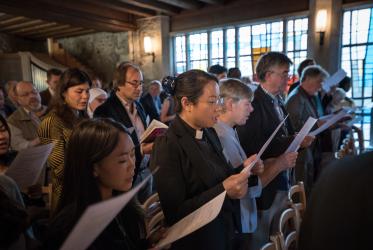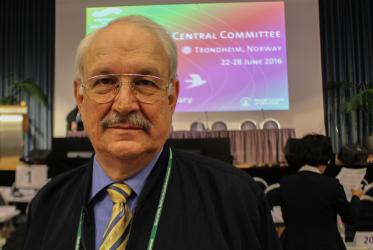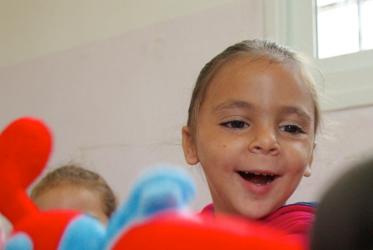Displaying 141 - 160 of 220
WCC general secretary speaks on religion and discrimination
14 February 2017
Churches in Norway and Pakistan break new ecumenical ground
26 January 2017
In Syria and Iraq, minorities must come out of the darkness
28 November 2016
Study group focuses on moral discernment in churches
04 August 2016
Religion: Way of war or path to peace?
30 June 2016
New Executive Committee members elected in Trondheim
28 June 2016
Pilgrimage and youth
28 June 2016
Puerto Rico in need of urgent help, says WCC
28 June 2016

